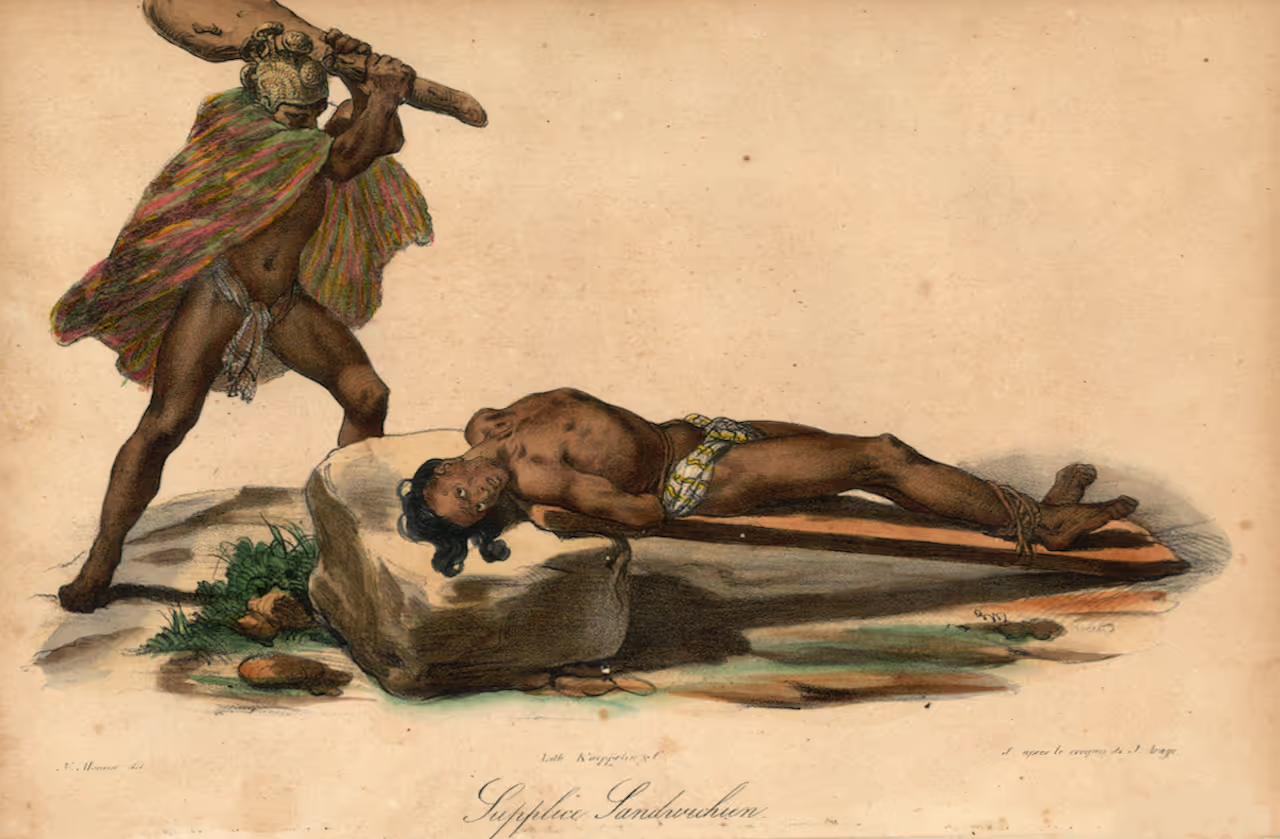Category: Culture
Events:
Articles:

June 5, 2025
Evaluating Narratives of Conscious Evolution
Every person is in a position to start consciously evolving their meaning systems for the groups in their own lives.

July 31, 2023
Cultural Evolution, Insight, and Fundamental Theories of Consciousness
Since cultural evolution is fueled by the creative efforts of human minds which, by anyone’s definition, are conscious, it would seem that consciousness plays a central role in cultural evolution.

September 8, 2021
New Funding Opportunities to Address Hot Topics in Cultural Evolution
Researchers of cultural evolution may leverage this understanding to enable them to predict (and potentially intervene) in key domains of great global concern.

May 25, 2020
Cooperation Through Cultural Group Selection
Cultural forces are far greater than genetic predisposition or geographic proximity in promoting cooperation with nonkin.

March 7, 2020
Evolving a Major Transition in the Internet Age
The theory of major transitions provides an all-encompassing framework to explore both the opportunities and challenges facing humanity in the Internet Age.

February 27, 2020
The Cultural Evolution of Social Pathologies: Introduction to a Series of Essays by Anthony Biglan
The fact that evolutionary selection pressures so often result in social pathologies might be hard to accept, but once faced squarely it can lead to an optimistic point of view.

September 10, 2019
Blurring the Line Between “Others” – A Practical Application of Cultural Multilevel Selection Theory
Through a cultural multilevel selection perspective, seeing an individual “other” as human can shift the level of selection from within subgroups at a lower level to between groups at a higher level.

June 18, 2018
You're Racist and Sexist, But It’s Not (Entirely) Your Fault
Companies are great at evaluating skills but inconsistent at evaluating temperament due to unconscious bias. These biases are, in part, a natural outcome of the human species evolving in small, homogenous groups. But new tools can help us overcome our innate biases to achieve cultural change.

January 19, 2018
Constructing Our Niches: Introducing the Importance of Cooperation and Ultimate Vs. Proximate Design Features
Collective and sustainable behavior is partially dependent on maintaining higher levels of cooperation among those involved, from the boardroom to the global stage.

January 12, 2018
Religious Epigenetics
How can conservative and progressive Christian denominations churches be so different from each other, despite sharing the same sacred text? For the same reason that skin and liver cells can be so different, despite sharing the same DNA.

December 6, 2017
Solving Friction with Fiction: Cooperation, Co-ordination, and the Evolution of Hunter-Gatherer Storytelling
Storytelling may help to solve problems of co-ordination in hunter-gatherer societies in order to promote cooperation.

October 10, 2017
Completing Darwin’s Unfinished Symphony: A Conversation with Kevin Laland
At the heart of Kevin Laland's new book is a “cultural drive” mechanism, whereby selection for accurate, efficient information transmission shaped the evolution of the primate brain and intelligence.

September 26, 2017
Unspeakable, Forbidden, Taboo: Teaching Evolution in the South with Dr. Amanda Glaze
Join Dr. Amanda Glaze in this insightful and engaging webinar as she discusses her research on teaching and learning evolution in the South and hear the insightful stories she has collected along the way.

August 16, 2017
Addressing White Supremacy, Hate and Inequities in our Global Village
Creating a truly functional, equitable, stable and sustainable nation certainly won’t be easy but a “blueprint,” can be found in our evolutionary past. What will it take? Those with the most power recognizing the realities of white supremacy, finding what’s needed to upscale this blueprint, and having the courage and vision to do so.

June 19, 2017
Deconstructing Niche Construction: A Conversation between Gordon Burghardt and Kevin Laland
The concept of niche construction stresses a dialectical relationship between organisms and their environments, rather than one being passively shaped by the other. It has deep roots in evolutionary thought but only now is resulting in a systematic research program. Join Gordon Burghardt and Kevin Laland as they take a deep dive into the subject.

April 27, 2017
This View of History Webinar: A Conversation With Peter Turchin
Peter Turchin discusses his new book "Ultrasociety: How 10,000 Years of War Made Humans the Greatest Cooperators on Earth". Ultrasociety chronicles 10,000 years of human history from an evolutionary perspective, shows how warfare paradoxically caused us to become the greatest cooperators on earth, and begins to point the way toward a future without war.

January 2, 2017
Bridging the Gap Between Laboratory and Field
To gain a holistic understanding of social evolution, we need to consider cumulative evidence, completing the puzzle one piece at a time. And to do that, we need to move back and forth between field and lab studies.

December 30, 2016
Defining and Implementing Field Sites in Cultural Evolution Science
If field sites are cross-cultural, multi-method, and collaborative across disciplines, however, they can improve the quality of our field, and help us make major steps toward understanding the evolution of human behavior.

December 27, 2016
On Field Sites for the Study of Cultural Evolution
How might we create a field site concept for cultural evolution that provides depth and breadth but that is based on new data?

November 10, 2016
Developing the Field Site Concept for the Study of Cultural Evolution: A Sociologist’s Perspective
If sociologists come to recognize that sociality and group process underlie the evolution of our species and are inherent in our biology, the use of field sites will become not just a means of framing sociological research but a clarion call for transdisciplinary recognition of the centrality of our discipline.

October 19, 2016
Developing the Field Site Concept for the Study of Cultural Evolution: Introduction
Together with commentaries by authors with diverse perspectives on field research, we hope to catalyze the formation of field sites for the study of cultural evolution around the world.

October 19, 2016
Developing the Field Site Concept for the Study of Cultural Evolution: An Anthropologist’s View
Cultural evolution research faces many challenges in the years to come. One of the most fundamental, perhaps, is to establish the extent to which cultural evolution is Darwinian.

October 3, 2016
Developing the Field Site Concept for the Study of Cultural Evolution: An Evolutionary Biologist’s View
The human capacity to transmit large amounts of learned information across generations is now properly seen as both a product of genetic evolution and a process of evolution in its own right.

September 6, 2016
Excerpt from Citizen Scientist: Searching for Heroes and Hope in an Age of Extinction
Citizen science is about regular people contributing to scientific discovery. Today’s burgeoning citizen science movement is aided and abetted by smartphone apps that precisely geolocate species observations. This “big data” citizen science is at the forefront of scientific methodologies today, but the roots of citizen science, and its basic purpose, hail back to Enlightenment impulses to understand God’s creation.

July 21, 2016
Religion through an Evolutionary Lens: A Conversation about Dominic Johnson’s “God is Watching You”
Dominic Johnson's new book present an new look at religion by suggesting that the same underlying scientific perspective—evolution and natural selection—can lead to a very different stance on religion from Richard Dawkins and other New Atheists.

February 2, 2016
Review of "Ultrasociety: How 10,000 Years of War Made Humans the Greatest Cooperators on Earth"
Professor Turchin’s new book Ultrasociety identifies the causal mechanisms hidden in the twists and turns of human civilisation by quantifying the rise and fall of empires.

November 18, 2015
God Is Watching You: How the Fear of God Makes Us Human
Read an excerpt from Dominic Johnson's new book 'God is Watching You' where he presents a new theory of the origins and evolution of not only religion, but also human cooperation and society, and explores how fear of supernatural punishment exists within and outside of religious contexts.

December 4, 2013
On The Origin Of HBES: Sarah Hrdy
An interview with a pioneer anthropologist and primatologistThe latest installment of “On the Origin of HBES: An Oral History,” focuses on Sarah Blaffer Hrdy, an anthropologist and primatologist who has made major contributions to sociobiology and related disciplines.
our newsletter







































































